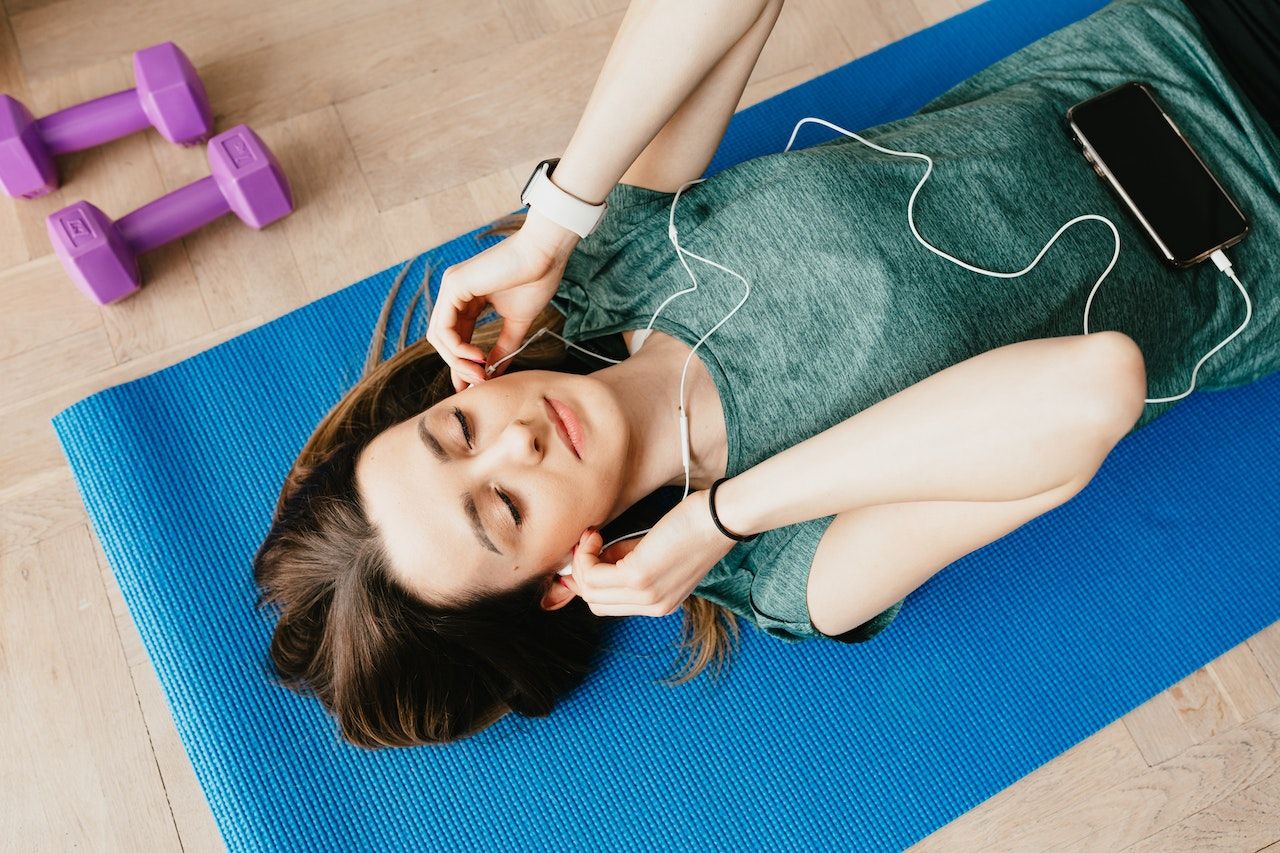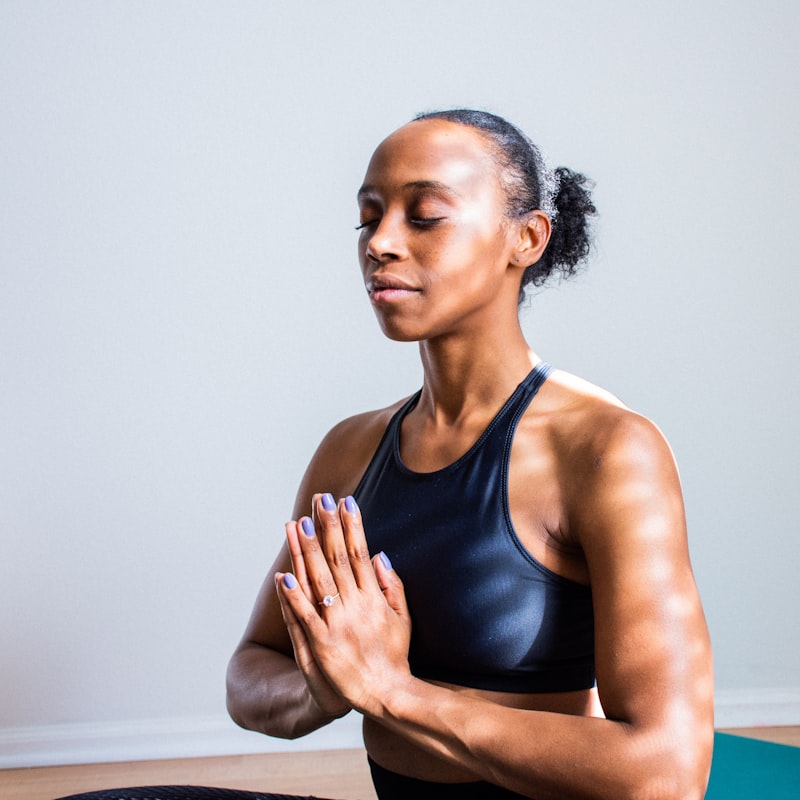Numerous studies have shown that music can have a positive impact on exercise performance. One study published in the Journal of Sports Medicine and Physical Fitness found that listening to music during exercise can increase endurance and improve overall workout quality. Isn't that amazing? Just imagine, the right tunes could be all you need to push through that last set of squats or to finally hit that 5k run goal. Can you believe we've all been sitting on this untapped power source?
Another study published in the International Journal of Psychophysiology found that music can help to distract from feelings of fatigue and discomfort during exercise, allowing individuals to push themselves harder and achieve better results. Research has also shown that music with a faster tempo can increase heart rate and improve overall performance. This is because faster music can help to synchronize movements and increase motivation.
Overall, the research suggests that incorporating music into your workout routine can have a significant impact on your performance and enjoyment of exercise. So, if you're looking to jazz up your workout routine, consider adding some upbeat tunes to your playlist!
So, what does this mean for you? Simple. It's time to put together your ultimate workout playlist. Think high-octane beats, uplifting lyrics, and songs that make you feel like a superhero. Trust us, your treadmill session will never be the same again!
Studies show that people who listen to music during their workout not only enjoy their exercises more, but they also perform better, pushing past their usual boundaries. Now wouldn't you want a piece of that action?
What are the benefits of listening to music during a workout?
Ever wondered what magical powers your workout playlist holds? "Music?" you might be thinking, "How can that possibly help?" Hold on to your sweatbands, folks, because you're in for an enlightening ride. You see, the right music can do wonders for your workout routine. No, we're not making this up. It's backed by research!
Well, let's dive into those sweet melodies and discover how they can jazz up your workout routine.
1. Motivation Boost:
Ever noticed how a power ballad can transform your leisurely jog into a fierce sprint? That's because music has the power to pump you up, drive you forward, and make you push harder than ever before. It's like having your own personal cheerleader in your ear!
2. Improved Performance:
Many studies show that the right tunes can enhance your performance significantly. The beat can help maintain a steady pace, making you less likely to burn out too quickly. It's like finding the perfect rhythm of your workout soul.
3. Better Mood:
Listening to music you love can light up your mood and make exercise feel less like a chore, and more like a dance party. Who said workouts can't be fun?
4. Distraction from Pain:
Music can distract you from the discomfort of exercise. Your focus shifts from each strenuous rep to the beat of your favorite song. And before you know it, you've powered through a high-intensity set with a smile on your face.
5. Increased Stamina:
A killer playlist can give you the power to go the extra mile – literally. The right track at the right time can make you feel invincible and keep you going longer than you thought possible. It's like running on musical fuel.
So, are you ready to crank up the volume and transform those grueling gym sessions into your personal concert? With the right music, your workout can become the highlight of your day!
What types of music are best suited for different types of workouts?
Music can have a significant impact on the intensity and duration of your workout. For high-intensity workouts, such as running or weightlifting, fast-paced music with a strong beat is ideal. This type of music can help you maintain a consistent pace and push yourself to work harder. Examples of suitable music genres for high-intensity workouts include rock, hip-hop, and electronic dance music (EDM).
On the other hand, for low-intensity workouts like yoga or stretching, opt for slower, calming music. This can help you focus better, reduce stress, and connect your mind and body. Consider genres like ambient, classical, or even some mellow jazz. So, what are you waiting for? Start crafting your perfect workout playlist today and watch how it transforms your exercise routine into something you actually look forward to!
For cardio workouts, such as cycling or aerobics, music with a consistent beat and tempo is ideal. This type of music can help you maintain a steady pace and synchronize your movements with the music. Examples of suitable music genres for cardio workouts include pop, dance, and techno music.
Now, what about those grueling strength training sessions? You know, the ones where you're lifting heavy weights, and your muscles are screaming for mercy? For these workouts, you need music that's powerful and energizing. Think rock, heavy metal, or even some high-energy hip-hop. These genres give you that extra push to lift that last rep, even when you think you can't. Remember, it's all about mind over muscle, and the right music can help you conquer your workout!
How does the tempo of music affect a workout?
The tempo of music has a significant impact on the intensity of a workout. Ever noticed how a thumping, fast-paced beat makes you cycle harder in that spinning class? Or how a strong, motivational anthem can push you to run just one more mile? It's not just in your head, folks. It's science, too. When you find that perfect workout song, that's not just your heart pounding in your chest. It's your workout hitting a higher gear.
A faster tempo can increase the heart rate and breathing rate, which can to a more intense workout. This can be especially beneficial for high-intensity workouts such as running or cycling. Don't believe us? Just pop in your earbuds, crank up the BPM, and watch as you suddenly transform into a workout warrior, effortlessly smashing your personal bests. The right music, my friends, isn't just a mood setter, it's a game changer.
On the other hand, a slower tempo can be more suitable for low-intensity workouts such as yoga or stretching. Slower music can help to relax the mind and body, which can enhance the overall experience of the workout.
Studies have shown that music tempo can also affect the perception of effort during exercise. When listening to music with a faster tempo, individuals may perceive their workout as less strenuous and more enjoyable, leading to longer and more effective workouts.
It's important to note that the optimal tempo for a workout can vary depending on the individual's fitness level and personal preferences. Experimenting with different tempos can help individuals find the music that works best for them and their workout routine.
What are the best headphones or speakers for a workout?
When it comes to choosing headphones or speakers for a workout, there are a few factors to consider. First, you want something that is sweat-resistant and durable. Look for headphones or speakers that are specifically designed for sports or exercise. They should be able to withstand sweat and moisture without getting damaged. Some popular options include the Bose SoundSport Wireless and the Jaybird X4 wireless headphones.
Another important factor to consider is comfort. You don't want headphones that are going to fall out or speakers that are going to bounce around while you're exercising. Look for headphones or speakers that fit securely and comfortably. Some headphones come with different sizes of ear tips or wings to ensure a snug fit. The Powerbeats Pro and the Jabra Elite Active 75t are both known for their comfortable and secure fit.
Finally, you want headphones or speakers that deliver high-quality sound. Look for headphones or speakers with good bass and clear highs. Noise-cancelling headphones can also be a good option if you're working out in a noisy environment. Some popular options for high-quality sound include the Sony WF-1000XM3 and the Sennheiser Momentum True Wireless 2.
Ultimately, the best headphones or speakers for a workout will depend on your personal preferences and needs. Consider factors like sweat-resistance, comfort, and sound quality when making your decision. It may also be helpful to read reviews and try out different options before making a purchase.






